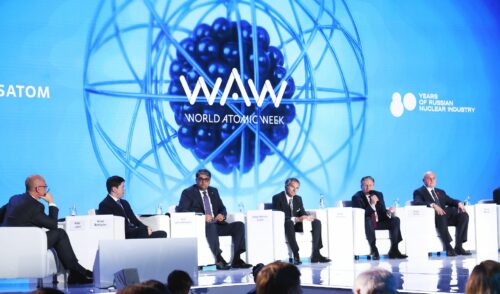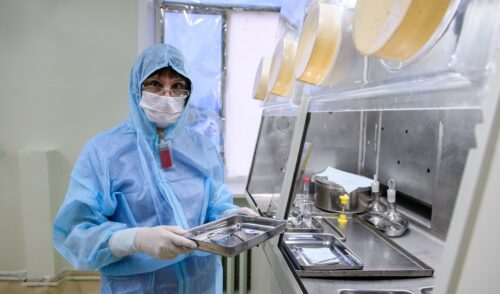
Responsibility for the Future
back to contentsThe Wild Edens project initiated by Rosatom includes three documentaries – Wild Edens: Russia, Wild Edens: Turkey and Wild Edens: South Asia. Each of the three episodes tells a story of pristine lands noted for exceptional natural beauty and inhabited by rare species. Local ecosystems of those remote areas are particularly vulnerable to the effects of global warming.
The screening of Wild Edens: Turkey in Mersin and Gülnar was attended by both the locals and high-ranking officials.
“We were pleased to learn that there are such beautiful creatures in our country. And now we also know about the threats that climate change poses for these creatures. I believe that our people have received a powerful message,” Alpaslan Ünüvar, Mayor of Gülnar, said after watching the documentary.
Commenting on the film, Eyüp Lütfi Sarıcı, Director of the Public Information Center at Akkuyu, stressed that nuclear energy played an important role in the fight against climate change. “In 2018 alone, [Russian-designed] nuclear power plants prevented 584 million tons of CO2 emissions. This is a tenth of exhaust fumes produced by all the vehicles on our planet. The civil nuclear industry contributes to sustainable development, which is necessary to preserve the flora and fauna. Rosatom and its international partners take on the responsibility for solving global environmental problems and call on the global community to adopt a more conscious and reasonable attitude towards the fragile balance of nature,” Eyüp Lütfi Sarıcı said.
Turkey’s need for nuclear energy producing no direct CO2 emissions is underlined by top officials of the country. Speaking at the G20 Summit in Japan, Turkey’s Energy Minister Fatih Dönmez said that the country was following a policy of energy mix diversification. According to him, the share of renewable power sources is expected to make two thirds of the country’s energy mix. The minister also stressed that Turkey intended to develop the nuclear energy industry. “Turkey plans to commission Akkuyu Unit 1 in 2023 and remains committed to developing nuclear as one of the primary sources of power in the country,” Fatih Dönmez added.
When speaking about the progress in the Akkuyu project, the minister focused on safety matters. He said that all the materials used in the nuclear plant construction – ranging from cement and steel to nuclear island components – would be certified to the strictest standards. The certification process will be supervised by the Turkish Standards Institute (TSE) and the dedicated Nuclear Regulatory Authority. “We follow a zero tolerance approach to any deviations or deficiencies in this area. Besides, we have long been a member of the IAEA that apply the strictest safety standards. Construction of a nuclear power plant is a process open for international supervision organizations,” Fatih Dönmez stressed.
For reference:
Akkuyu is the first nuclear power plant in Turkey. It will have four units with Russian-designed Generation III+ VVER-1200 reactors fully compliant with the post-Fukushima safety standards. Their total capacity will be 4.8 GW. Construction of Unit 1 started in April 2018. Concreting of the foundation slab for the first unit was finished in March 2019. The first unit is planned to be launched in 2023 followed by one unit every subsequent year.




